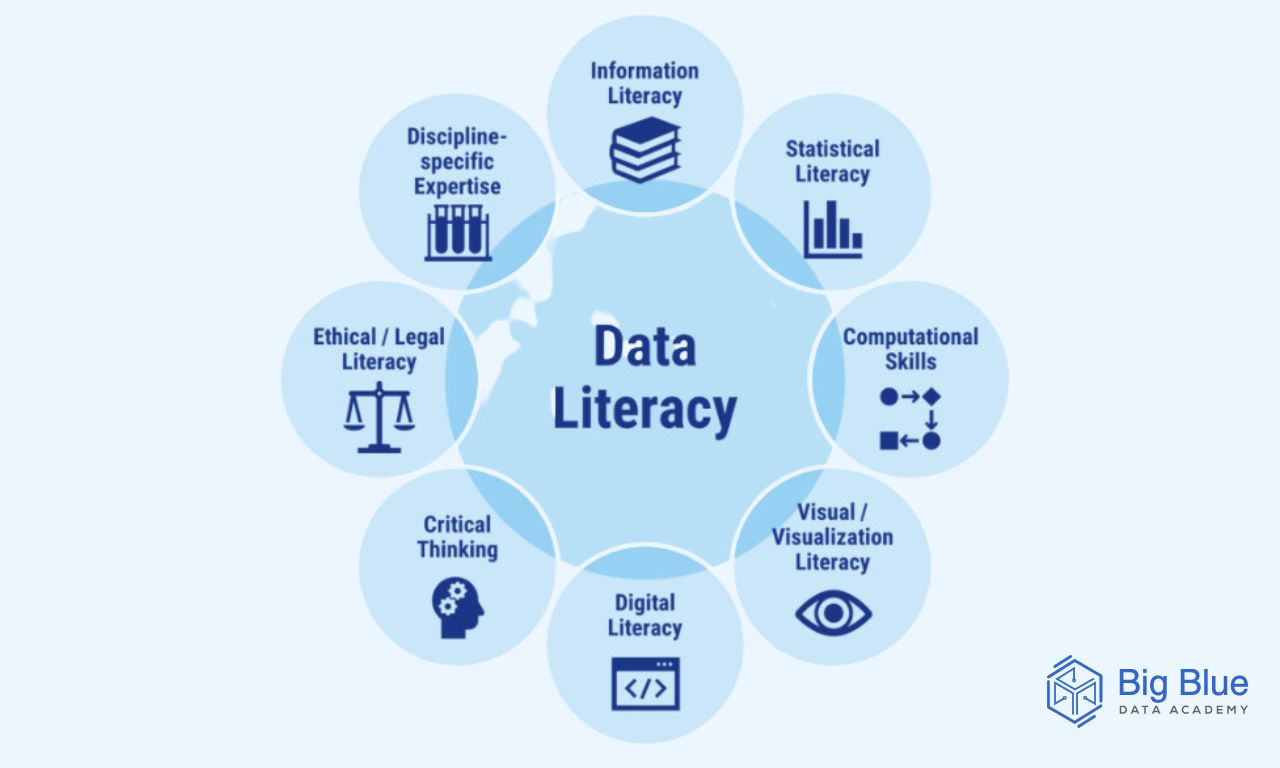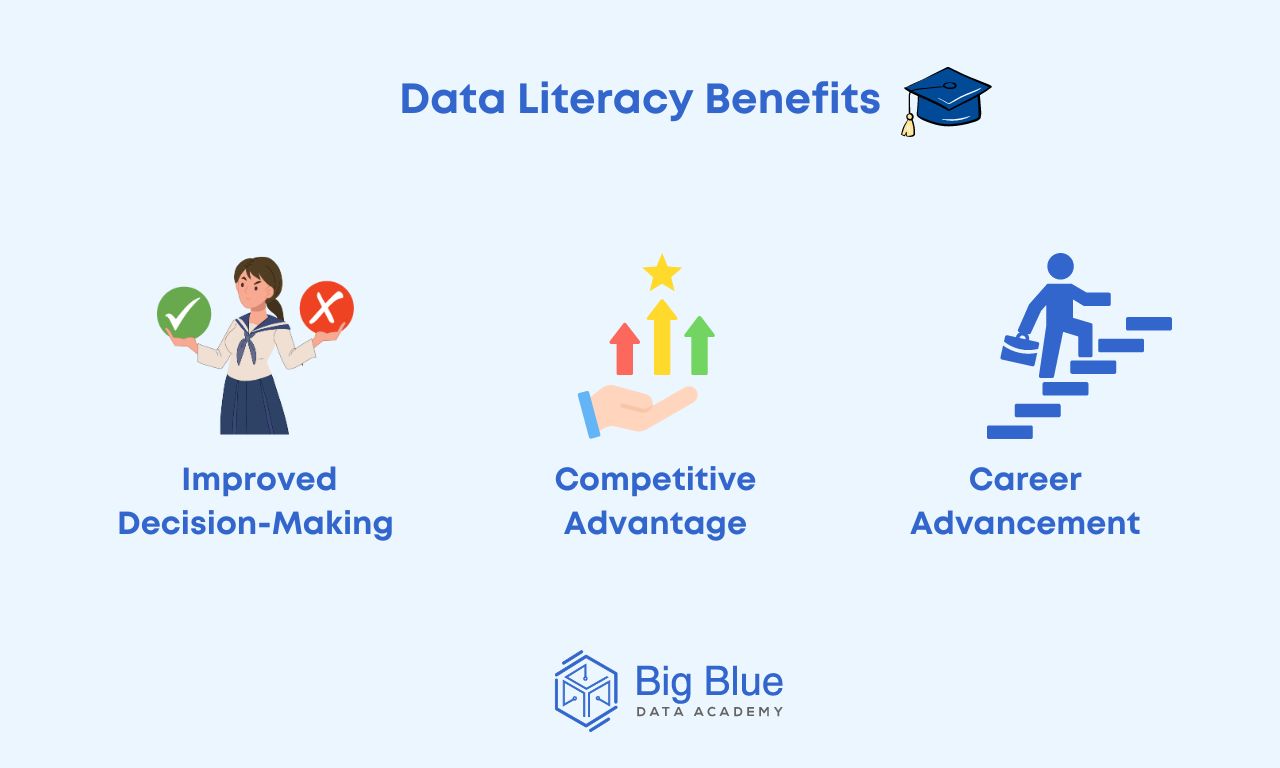Data Literacy: Definition and Importance in Today's World
Organizations and businesses are collecting and analyzing more data than ever before.
However, the ability of employees to understand, analyze, and evaluate data for more effective decision-making is a challenge and sometimes does not keep pace with technological advancements.
Empowering employees through the enhancement of their data skills is crucial for the development of any-sized enterprise.
For this reason, more and more businesses are striving to promote data literacy and, more broadly, the improvement of their employees' skills, as it has been proven to offer multiple benefits.
In today's article, we will explore:
What is data literacy?
What benefits does it offer?
Some basic data literacy skills worth acquiring
Let's start with a basic definition.
What Is Data Literacy?
Data literacy is the possession of a set of skills for reading, understanding, analyzing, and presenting data.
These skills required for effective work with data include the ability to critically evaluate data, extract essential information, and make informed decisions based on data-driven evidence.

As an analogy, for a better understanding, we can say that data literacy is the ability to acquire critical information from a dataset, similar to how literacy, in a general sense, is the ability to acquire information from written text.
Let's now delve a bit deeper into why data literacy is so important.
Why is Data Literacy Important?
In today's era of digital transformation, data literacy is one of the most crucial skills that a business or an individual can possess.
Businesses, in order to meet emerging demands, keep up with rapid changes, and ultimately stand out from the competition, need to prioritize data literacy.
Some of the key benefits of data literacy include:

Benefit #1: Improved Decision-Making
Data literacy allows individuals and businesses to make informed decisions supported by empirical evidence, leading to more efficient outcomes and saving time and money.
Decision-making based on data is becoming increasingly prevalent in all sectors.
Benefit #2: Competitive Advantage
Organizations that promote data literacy and, more broadly, a data-driven work culture are better positioned to leverage data for innovation, process optimization, and identifying new opportunities and areas for improvement.
Employees with data literacy skills and companies investing in upskilling their workforce can gain a significant competitive advantage.
In fact, according to a 2022 study by Tableau in collaboration with Forrester Consulting:
- Nearly 80% of employees stated that they are more likely to stay with a company that adequately trains them in the data skills they need.
- 82% of decision-makers expect at least a basic level of data literacy from all employees in their department.
Benefit #3: Career Advancement
Individuals who can work with data are often in high demand by employers and have greater opportunities for professional development and higher salaries.
In many professions, including the field of data science, data literacy is considered a fundamental skill.
In many companies, the critical role for upskilling and strengthening data literacy is held by those who are managers and are called upon to lead a data team.
A data science manager, for example, needs to understand technical terminology, create a data culture, and develop data-driven strategies.
Now, let's take a look at some basic data literacy skills.
3 Basic Data Literacy Skills
Some of the fundamental data literacy skills include the following:
Skill #1: Data Reading
At the top of our list is understanding data and evaluating findings, so that this understanding can be utilized to make well-documented decisions.
Data can come from a report or a spreadsheet related to a specific aspect of the company.
Skill #2: Data Analysis
At a more advanced level, data literacy can involve processing information or using raw data to create visual representations and visualizations of data with explanations.
Some basic skills include:
- Transforming and organizing data for analysis
- Predictive modeling and machine learning
- Data visualization
Let's continue.
Skill #3: Communicating with Data
This skill is more advanced and involves explaining data to non-experts in an understandable way.
It includes data storytelling, understanding data science concepts, and, in general, conversing about the methods, theories, and tools used in this field.
Final Thoughts
So, we've seen what data literacy is, why it's important, and some of the skills it encompasses.
In summary, data literacy is more critical and relevant than ever as it promotes innovation, provides a competitive advantage, and serves as a crucial pillar for professional development.
If you are enthusiastic and want to learn more about the unique world of data science, follow us for more educational articles and we will keep you updated!


.jpg)